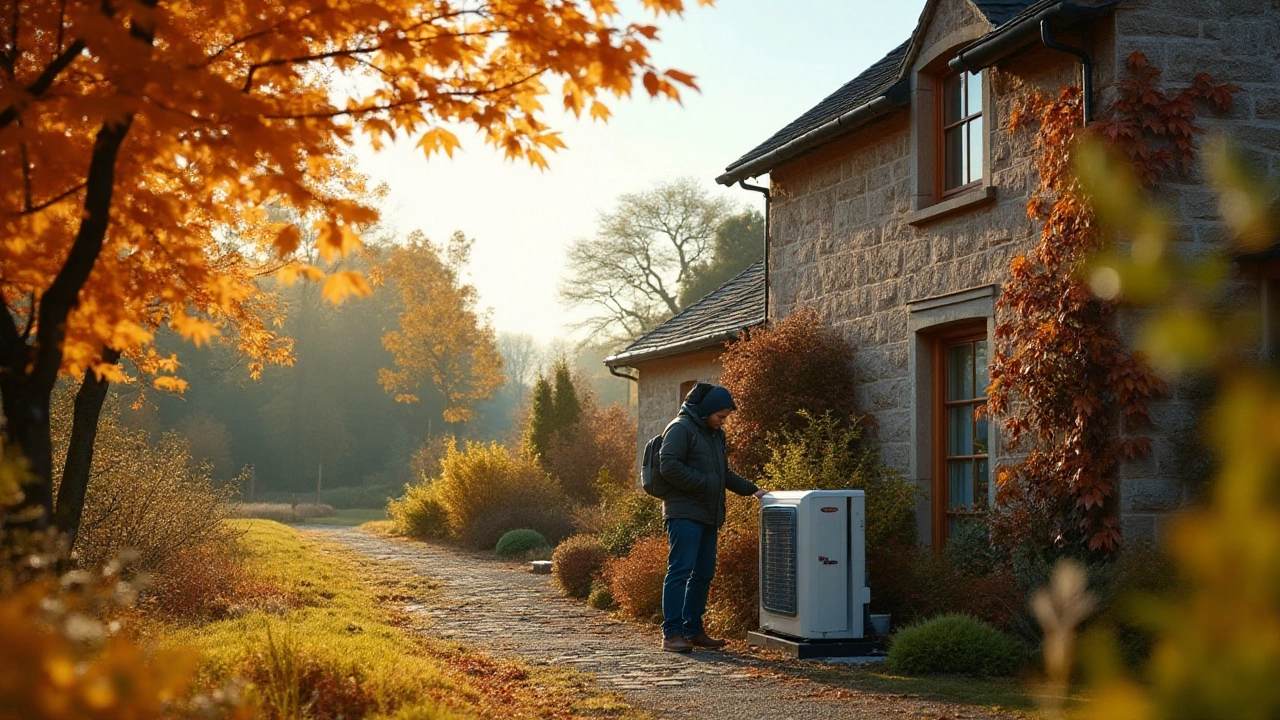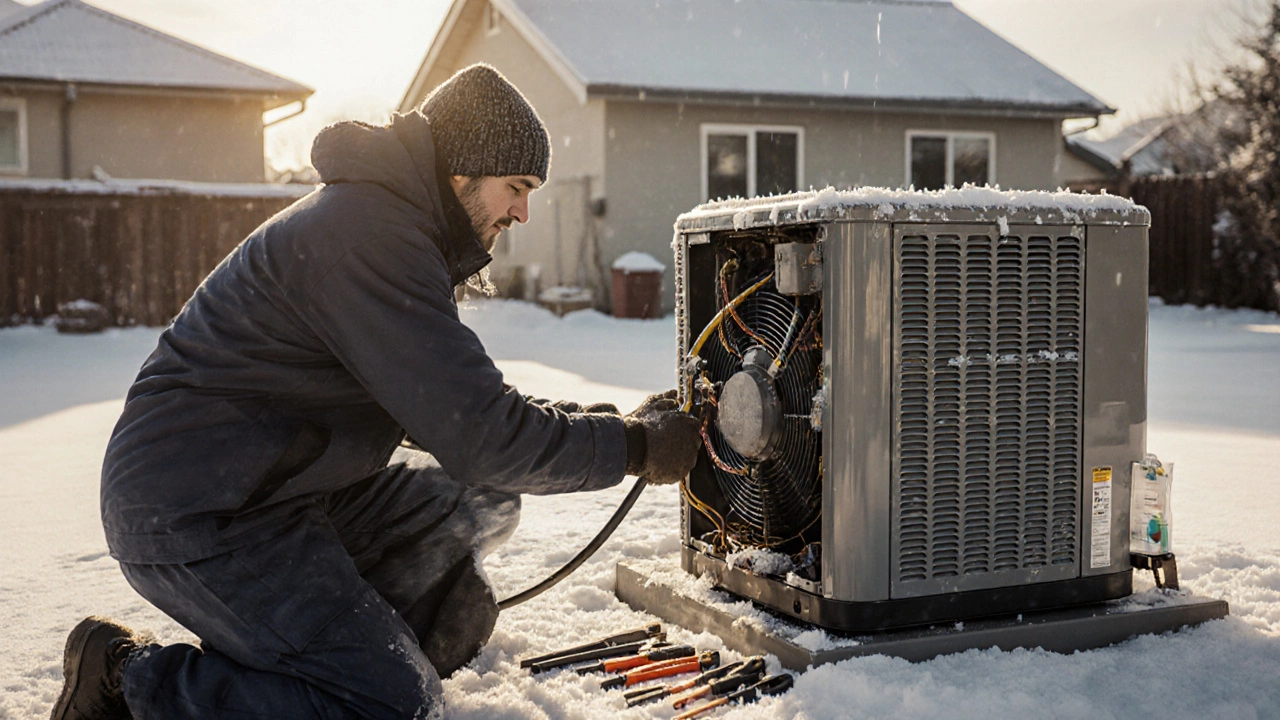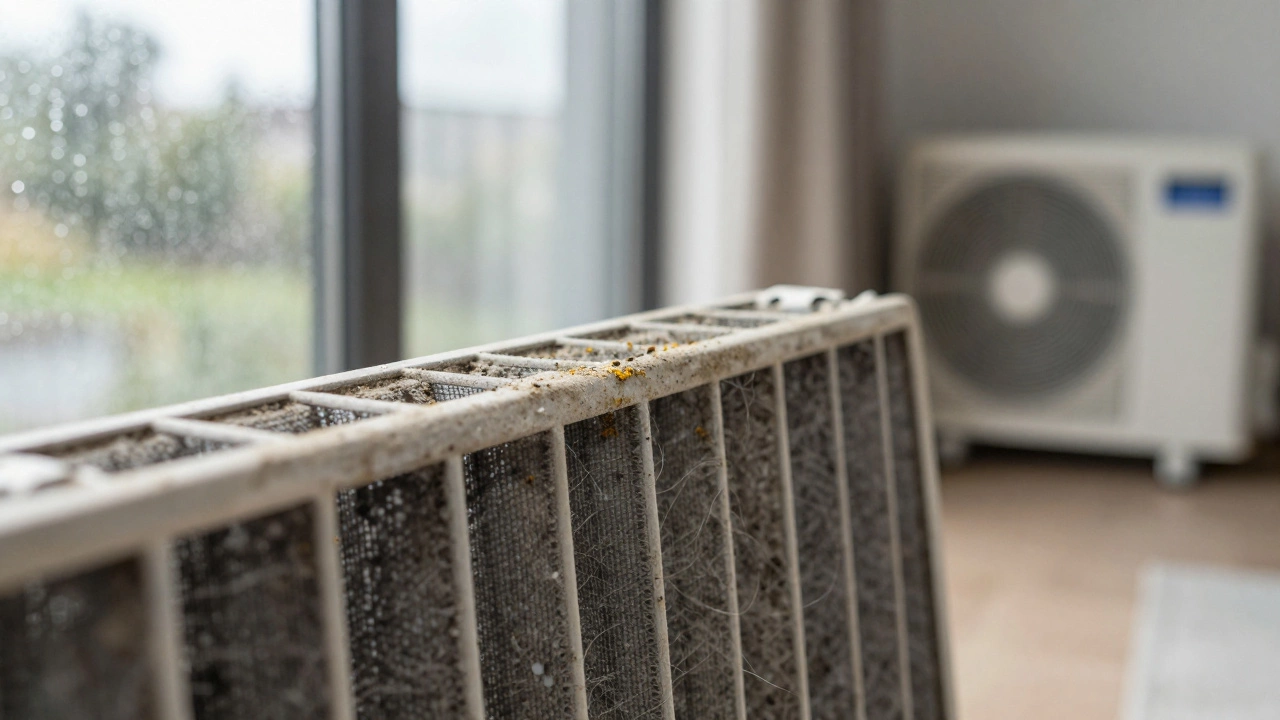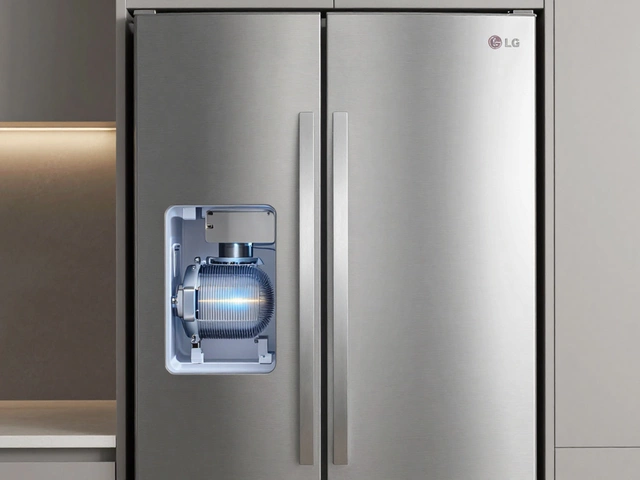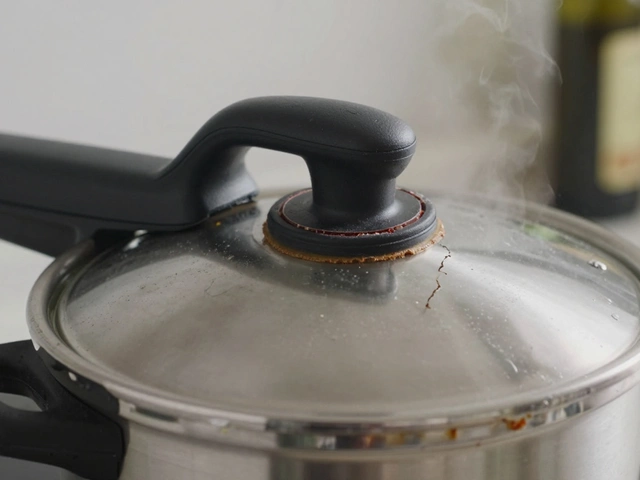Heat pumps have become an integral part of many homes, offering both heating and cooling solutions in a single, efficient package. But like any appliance, they are not built to last forever. Understanding what affects the longevity of a heat pump is essential for ensuring it serves your home effectively for as long as possible.
By grasping the factors that influence how long your heat pump will function correctly, you can take practical steps to extend its life. We'll delve into the average lifespan of these units, the signs they might be failing, and some handy tips to keep them running smoothly. Whether you are a seasoned owner or new to heat pumps, there's valuable information here to help you make the best decisions for your home comfort.
- Heat Pump Basics
- Factors Influencing Lifespan
- Signs Your Heat Pump Needs Attention
- Maintenance Tips to Extend Lifespan
- Making Decisions: Repair or Replace?
Heat Pump Basics
In the world of home climate control, heat pumps stand out for their versatility and efficiency. These marvels of engineering are not just heating devices; they are dual-purpose systems capable of controlling temperatures in both directions—heating during winter and cooling through summer. But how do they achieve this? The magic lies in their ability to transfer heat rather than generating it through combustion, which gives them a distinct advantage in energy efficiency over traditional heating systems.
At the heart of every heat pump is a cycle of refrigeration. This isn't too different from your standard refrigerator, which moves heat from inside the fridge to the outside, cooling the interior. Similarly, a heat pump extracts heat from one place and deposits it elsewhere. During the cold months, they draw heat from the outdoor air—even when it's surprisingly chilly—and transfer it into your home. Conversely, in the hotter months, the operation reverses, extracting heat from indoors and expelling it outside, functioning much like an air conditioner.
Types of Heat Pumps
Heat pumps come in various forms, mainly categorized into air-source, ground-source, and water-source systems. Air-source heat pumps are the most common due to their simpler installation and cost-effectiveness. Ground-source, or geothermal, heat pumps, though more expensive and complex to install, offer unparalleled efficiency by leveraging the stable temperatures beneath the earth’s surface. A growing interest in reducing energy consumption and carbon footprints has spurred advancements in these technologies, with innovations increasing year-over-year.According to the U.S. Department of Energy,
"Energy efficiency improvements in heat pumps could reduce heating costs by as much as 50% compared to baseboard heaters and 35% compared to oil heaters."This makes heat pump maintenance not just a priority for performance but also for extending the equipment's lifespan. It's fascinating to note how modern engineering and innovative solutions continue to evolve these systems, enhancing efficiency and adapting to varied climates.
For any homeowner considering a heat pump, understanding the basics is the first step to leveraging its benefits. Proper sizing and installation are critical. A system that is too large or too small for the space can lead to inefficiency, which might compromise comfort and lead to unnecessary wear and tear. It's advised to consult with a heating, ventilation, and air conditioning (HVAC) professional who can recommend an optimized system based on local climate, home size, and specific needs. A well-designed and maintained heat pump system could serve reliably for a decade or more, offering both comfort and cost savings over time.
Factors Influencing Lifespan
The lifespan of a heat pump hinges on several crucial factors, much like the intricate mechanics of a well-oiled machine. From the outset, the quality of the heat pump plays a pivotal role. Top-tier models from reputable brands typically outlast their cheaper counterparts, primarily because they are engineered with superior components that withstand the test of time. However, that does not mean all cheaper options will underperform; meticulous research and choosing a unit that matches your specific needs can extend longevity.
Another significant player in determining how long your heat pump will live is the climate you reside in. Heat pumps work hardest in areas with extreme weather conditions, whether it's sweltering summers or bone-chilling winters. This constant pressure can speed up the wear-and-tear process. In contrast, regions with moderate climates offer a less strenuous working environment for the pump, often resulting in a longer life. To illustrate, heat pumps in the southern regions of the United States might endure more stress compared to those in the north.
Moreover, the importance of regular maintenance cannot be overstated. Consistent check-ups conducted by professionals can significantly impact a heat pump's lifespan, catching minor issues before they balloon into serious problems. A well-maintained heat pump tends to run more efficiently, reducing wear on the components. On this note, owners are often advised to schedule bi-annual maintenance checks to ensure optimal performance.
The way a heat pump is used daily can also influence how long it stays effectively operational. Systems that constantly run at full capacity may burn out more quickly compared to those allowed to cycle on and off efficiently. Homeowners who strategically set their thermostats and avoid pushing their pumps to extremes will generally see better longevity. As the old adage goes, a stitch in time saves nine, meaning disciplined use can prevent premature breakdowns.
The installation process is yet another critical factor. Improper installation can doom a heat pump from the start, leading to inefficient operation and potentially expensive repairs down the road. It's essential to engage certified professionals who ensure everything from the insulation of ductwork to the placement of the unit is handled with precision. Proper installation is sometimes half the battle won in ensuring your heat pump reaches its potential lifespan.
Lastly, technological advancements have made their mark. Modern heat pumps are not only more energy-efficient but also come equipped with smart features that facilitate lighter, more efficient usage. For instance, adjustable speed motors and innovative software can drastically improve performance and lifespan. As technology progresses, these smart systems will likely set new benchmarks for how long we can expect our heat pumps to last.
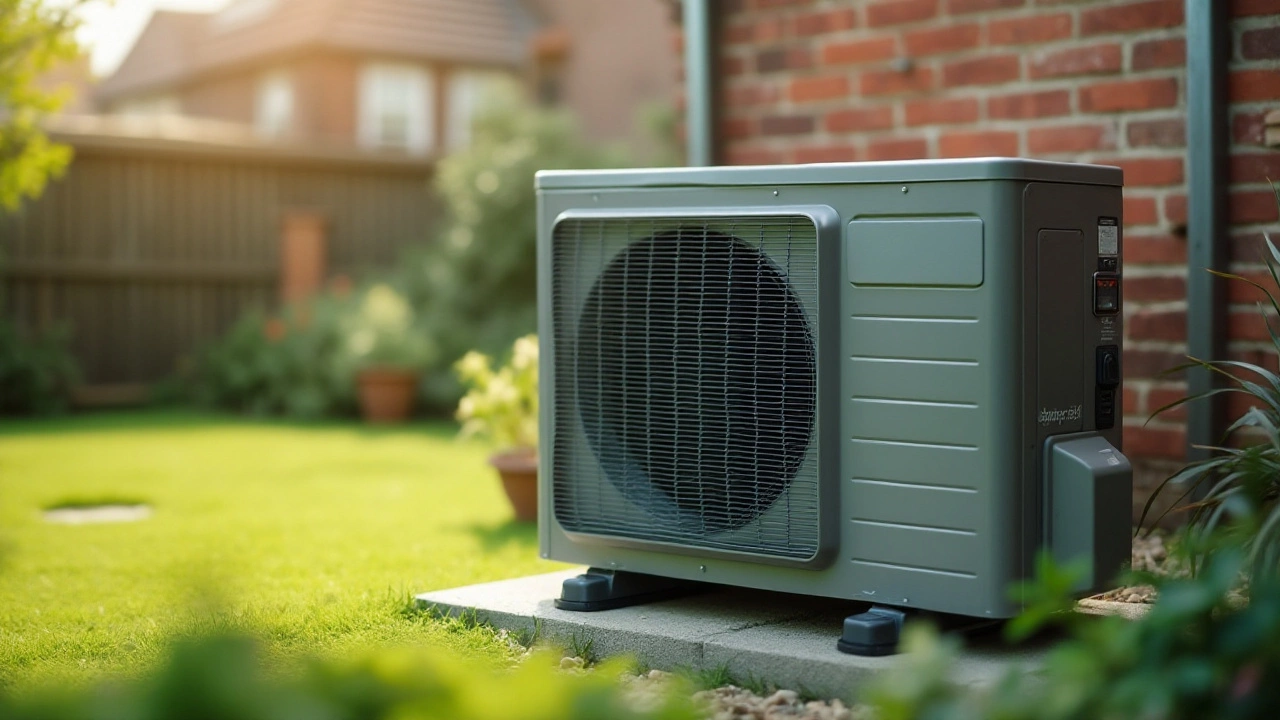
Signs Your Heat Pump Needs Attention
A properly functioning heat pump is like the steady heartbeat of a cozy home, seamlessly providing comfort no matter the season. However, like any piece of machinery, it will eventually show signs of wear and tear. Recognizing these early warning signals can save you from costly repairs or unexpected breakdowns, ensuring your peace of mind.
One of the telltale signs your heat pump might be struggling is an unusual increase in your utility bills. When the system works harder than necessary due to underlying issues, it can lead to energy wastage. This inefficiency is often a clue that maintenance is overdue or some components might be malfunctioning. Strange noises, such as grinding or squealing, are another red flag. These sounds often indicate loose parts or something more critical within the unit. It's not just the audio cues you should be attentive to; visual inspections can reveal a lot. If you notice ice buildup during cooler months or water leaks, it’s likely time for a checkup.
The absence of adequate heating or cooling output is also a major indicator that your system isn’t in good health. If you find that areas of your home are not reaching desired temperatures, the issue might not solely be with your heat pump, but ducts or filters could also be culprits. Clogged filters or blocked vents can impede airflow, severely reducing performance while putting strain on the system. Keeping an eye on the thermostat is crucial too. Incorrect readings or failure to respond appropriately are signs that something might be amiss.
Sometimes, despite careful use and maintenance, parts like the fan blades or compressors may wear down simply due to age. A trained technician can easily assess these components, and regular checks can help prolong their lifespan. It was noted in a
home energy efficiency report by the American Council for an Energy-Efficient Economy (ACEEE) that regular maintenance can improve system performance by over 15%. This statistic alone underscores the importance of addressing minor issues before they escalate.
Whether you're juggling tasks at home or relaxing on the weekends, uninterrupted comfort should be a given, not a condition puzzled by unexplained discomfort or perplexing noises. By keeping a keen eye on these signs, you can nip potential problems in the bud, ensuring your heat pump remains a trusty ally in managing your home's climate.
Maintenance Tips to Extend Lifespan
The secret to a long-lasting heat pump lies in proper maintenance. Regular check-ups and a few proactive steps can significantly extend the lifespan of these appliances. It's not just about keeping the heat pump clean but also ensuring every part functions at its best. For starters, routine cleaning is essential. It involves making sure that the filters, coils, and fins are free of dirt, dust, and debris. When air filters are clogged, it forces the system to work harder, which may cut down its life span significantly.
One often overlooked aspect of *heat pump maintenance* is the outdoor unit. The external part is exposed to weather elements like rain, snow, and wind, which can gradually cause wear and tear. Keeping the area around the outdoor unit clear of leaves, snow, and any debris ensures proper airflow and prevents the system from overworking. A good rule of thumb is to check the space every couple of months, or more frequently during the fall, to clear dropped leaves. Ensuring there's at least two feet of clearance can help maintain optimal performance.
The unit's performance can also be supported through a regular schedule for professional maintenance checks. An expert can inspect and tune up your heat pump at least once a year, usually before the winter heating season begins. During these checks, they will examine the ducts for leaks, measure airflow, check refrigerant levels, and verify electric terminals, which can be intricate for a homeowner to assess. As noted by the U.S. Department of Energy, this annual service is crucial for spotting issues before they evolve into costlier repairs.
"Maintenance is key in preserving the longevity of your heat pump," says John Wright, a seasoned HVAC technician with more than 20 years of experience. "Simple things like changing filters and keeping the outdoor unit clean can add years to the heat pump's life."
Proper thermostat use also plays a pivotal role in maintaining your system. It's essential to set your thermostat to an energy-saving temperature when you're not at home. In addition to this, investing in a programmable thermostat can automate these settings according to your schedule. According to several studies, this alone can save homeowners around 10% on their energy bills annually, while preventing unnecessary wear on the *heat pump*.
Finally, consider checking your heat pump's energy efficiency ratings regularly. If efficiency is decreasing despite good maintenance, it might be time to identify potential upgrades or repairs. Understanding signs of declining efficiency can give a better idea of when to perform more intensive care or replace parts of the system, aiding in decision-making related to repair versus replacement.
When these maintenance tasks become a part of your regular routine, your heat pump's lifespan can be greatly increased, preserving comfort and stability in your home for many years to come.

Making Decisions: Repair or Replace?
When that trusty heat pump starts showing signs of wear and tear, or perhaps isn’t quite keeping your home comfortable the way it used to, it’s the perfect moment to pause and consider whether a repair or replacement is the best course of action. The decision can often be clouded by emotion and financial considerations, thus requiring a bit of pragmatic thinking. One of the first steps is to analyze the age of the unit. Industry standards suggest most heat pumps have a lifespan of about 10 to 15 years. If your heat pump is within this age range, especially on the younger end, repairs could be a very cost-effective decision. However, as they inch closer to that 15-year mark, it might be prudent to lean toward replacement, anticipating future breakdowns which could stack up substantially in terms of cost.
The efficiency of a heat pump plays a crucial role in this decision-making process, too. Over time, just like any other machine, heat pumps can become less efficient. This loss of efficiency not only spikes your utility bills but also raises your carbon footprint. Regular increases in your energy bills over time, without significant changes in weather or use, may be a sign that your unit is not performing optimally. Newer models tend to be more energy-efficient due to advances in technology, potentially saving you money in the long run. Experts often use the SEER and HSPF ratings as benchmarks for efficiency; higher numbers translate to better energy savings.
According to the Department of Energy, replacing an older heat pump can save households up to 30% on heating and cooling bills, demonstrating substantial long-term savings.
Understanding the cost implications often helps in making informed decisions. Repairs may seem like the cheaper option upfront, yet consistent repairs can quickly add up, sometimes surprisingly approaching the price of a new unit. Evaluating the frequency and cost of recent repairs can provide insight into whether your current system is likely to continue breaking down. Keep records of all service appointments and expenses; if the numbers are edging towards 50% of a new heat pump’s cost, replacement might be the smarter choice. When deciding on a new purchase, keep warranty options in mind too; they offer peace of mind and financial protection against unforeseen future repairs.
Maintenance is another angle to consider because consistent upkeep can significantly extend the lifespan of existing heat pumps. Simple tasks like changing air filters regularly and scheduling bi-annual check-ups can spot potential issues before they advance, allowing minor adjustments instead of large-scale repairs or replacements. But, be honest with yourself about past maintenance habits to gauge future potential. A poorly maintained pump might not benefit as much from repairs, due to unseen, compounded damage over time. On the other hand, a well-maintained system, even if older, might still offer a few more years of solid performance with just some minor tweaks.
Lastly, don’t forget to factor in your lifestyle changes and future home plans. Are you planning to move soon? In that case, selling a home with a new heat pump can add substantial value and be a selling point to prospective buyers, indicating the home has been well maintained. If no move is imminent, consider your plans for the home environment. Do you need a system that has better humidity control, smarter thermostatic control, or is more eco-friendly to suit your evolving preferences? These factors can all influence whether a repair will suffice or a replacement will be more advantageous.
